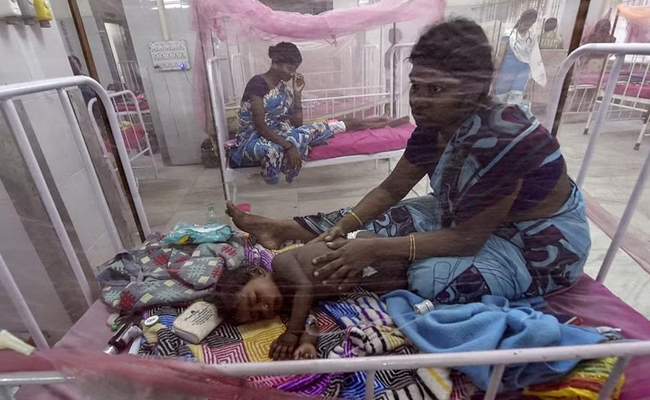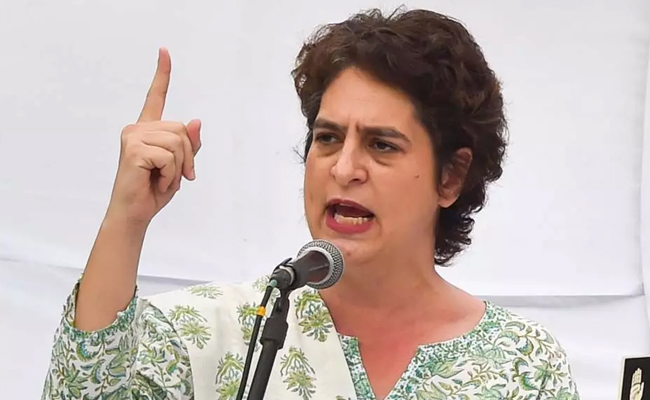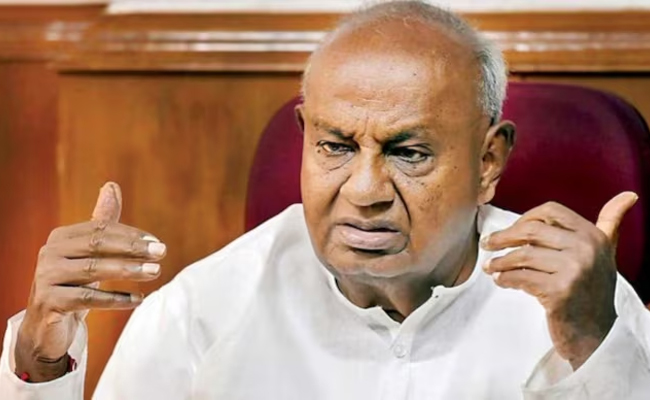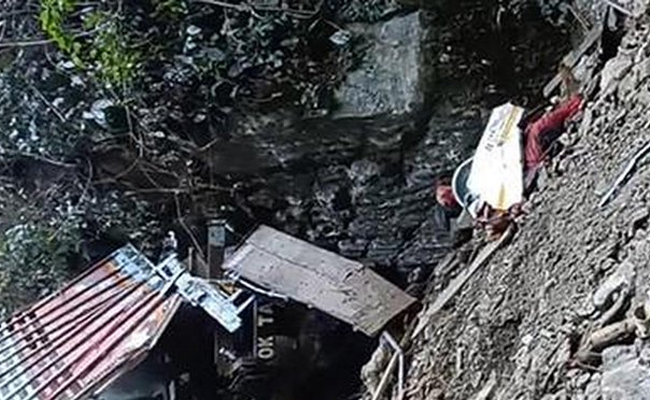Bengaluru, July 8 (PTI): The Karnataka government on Monday issued a directive mandating all gram panchayats to implement protocols to manage dengue cases, with specific emphasis on ensuring regular cleaning of water storage tanks, open reservoirs, and public toilets to maintain sanitation standards.
Minister of Rural Development and Panchayat Raj, Priyank Kharge advised gram panchayats to establish "Village Health, Sanitation and Nutrition Committees" to actively promote dengue control initiatives.
He also directed them to adopt precautionary measures promptly.
As per health department data, Karnataka has till last evening recorded 7,165 dengue positive cases since January this year, with areas coming under the city civic body, Bruhat Bengaluru Mahanagara Palike (BBMP), accounting for the largest at 1,988.
On Sunday, the State reported 159 fresh dengue infection cases, including 80 from BBMP areas.
In an effort to curb the spread of dengue in rural areas and effectively control dengue cases, several urgent measures have been outlined by the Minister, as per which the gram panchayats are instructed to: conduct weekly sanitation checks and ensure the proper cleaning of water storage tanks, open reservoirs, and public toilets to prevent water stagnation; and ensure swift and safe drainage of rainwater to prevent it from becoming a breeding ground for mosquitoes.
And also maintaining cleanliness and hygiene in homes, shops, hotels, commercial complexes, public spaces, and vacant lands to prevent long-term water accumulation and ensure proper waste management practices, his office said in a release.
Kharge also stressed the importance of maintaining operational control valves in water supply systems to prevent water stagnation and control mosquito breeding.
"Gram panchayats are advised to strictly adhere to these guidelines to prevent the spread of dengue fever in rural areas. It is recommended to ensure existing wells and water supply systems are equipped with proper control valves to prevent mosquito breeding and ensure adequate water flow," the directive said.
To effectively manage dengue cases, it is imperative that gram panchayats conduct proper maintenance of wells and water supply systems to prevent water stagnation and minimise mosquito breeding, it was stated.
The Minister also emphasised the importance of raising awareness through health education programmes organised by gram panchayats, involving community health volunteers, women's self-help groups, and local educational institutions to educate residents on dengue control measures.
Let the Truth be known. If you read VB and like VB, please be a VB Supporter and Help us deliver the Truth to one and all.
New Delhi (PTI): Congress leader Priyanka Gandhi Vadra on Monday slammed the government over its move to change the name of MGNREGA, asking what is the government's intention behind removing the name of Mahatma Gandhi who is the tallest leader not just in India but in the world.
A bill to repeal the MGNREGA and bring a new law for rural employment -- Viksit Bharat Guarantee for Rozgar and Ajeevika Mission (Gramin) (VB-G RAM G) Bill, 2025 -- is set to be introduced in the Lok Sabha. According to a copy of the bill, it seeks to introduce the VB-G RAM G Bill, 2025, in Parliament and repeal the Mahatma Gandhi National Rural Employment Guarantee Act (MGNREGA) of 2005.
Asked about the government's move, Priyanka Gandhi said, "Whenever the name of a scheme is changed there are so many changes that have to be made in offices, stationery... for which money is spent. So, what is the benefit, why it is being done?"
"Why is Mahatma Gandhi's name being removed. Mahatma Gandhi is considered the tallest leader not just in the country but in the world, so removing his name, I really don't understand what is the objective? What is their intention?" she told reporters in Parliament House complex.
ALSO READ: Ex-PM Devegowda warns opposition of electoral losses if they continue to allege 'vote chori'
"Even when we are debating it is on other issues not the real issues of the people. Time is being wasted, money is being wasted, they are disrupting themselves," Priyanka Gandhi added.
The bill aims at establishing a "rural development framework aligned with the national vision of Viksit Bharat 2047", by providing a statutory guarantee of 125 days of wage employment in every financial year to every rural household whose adult members volunteer to undertake unskilled manual work.
The bill has been listed in the Lok Sabha in the supplementary list of business issued on Monday.
Rural Development Minister Shivraj Singh Chouhan, in the statement of purpose of the Bill, said MGNREGA has provided guaranteed wage-employment to rural households over the past 20 years.
However, "further strengthening has become necessary in view of the significant socio-economic transformation witnessed in the rural landscape driven by widespread coverage of the social security interventions and saturation-oriented implementation of major government schemes", he said.





